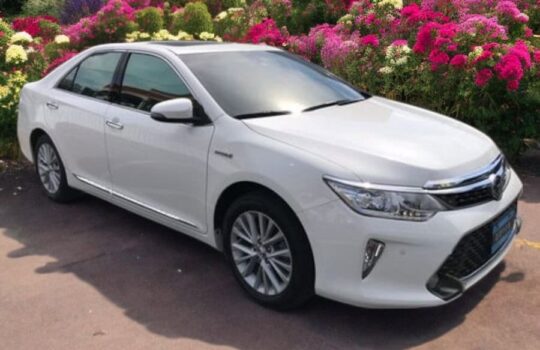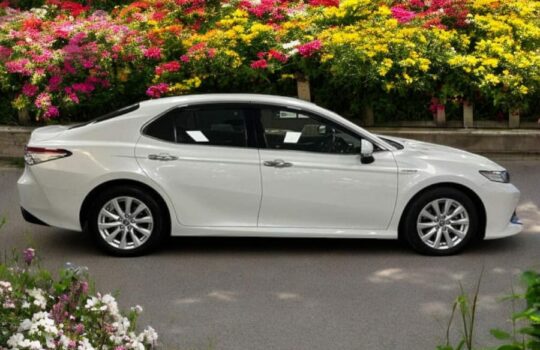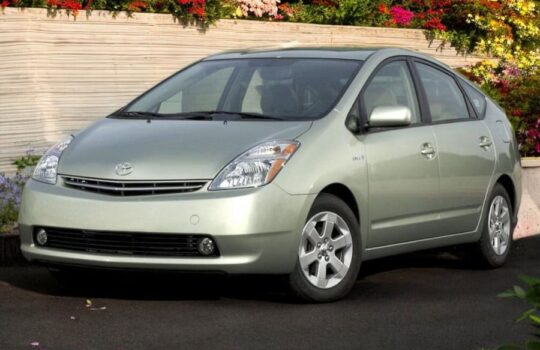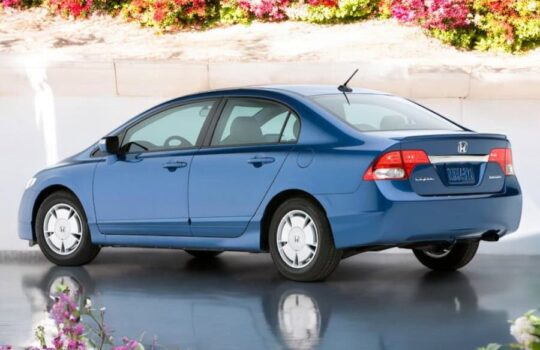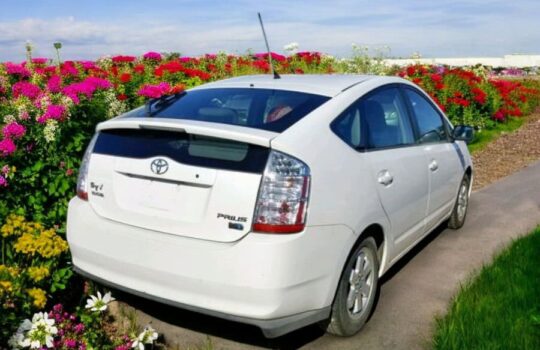How to Extend the Lifespan of Your 2005 Toyota Prius Battery
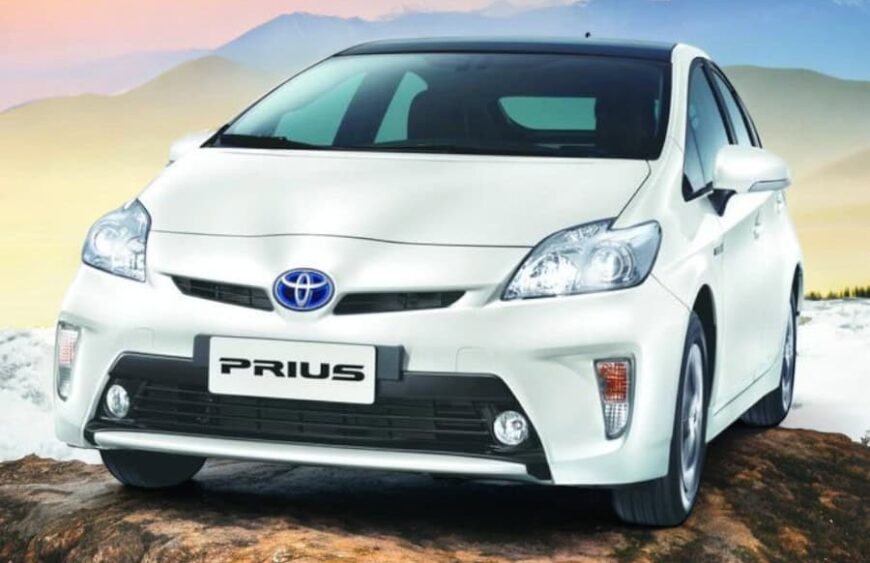
Most drivers give more thought to their car battery once it dies on them, which can be costly and inconvenient. Luckily, there are steps you can take to extend its lifespan.
Your Prius hybrid battery contains 28 individual cells, and as these aging cells lose the ability to hold their charges, their performance decreases over time.
Battery Lifespan
A Toyota Prius battery’s longevity is a testament to its lightweight design, advanced material chemistry, and the cost-effective care taken when maintaining and servicing it. To maximize lifespan, it is recommended to follow manufacturer-recommended servicing schedules, clear battery terminals regularly of dirt build-up and corrosion, schedule regular maintenance checks on its terminals, and visit local shops when you suspect battery problems arise.
Prius hybrid systems feature two batteries: the main Hybrid System Battery, which works with your gas engine to drive, and a secondary 12-volt battery for lights, computers, headlights, and other equipment. Your car’s battery should typically last eight years or 100,000 miles, depending on its age and operating climate.
An unhealthy battery typically makes your car feel clunky and slow, affecting fuel economy. However, it could also show signs such as the engine not starting, dashboard warning lights, or a noticeable decrease in fuel efficiency. In extreme cases, it could completely discharge itself or shut off. If you notice any of these signs, it’s important to have your battery checked as soon as possible.
Sooner or later, replacing the battery of your Toyota Prius will become necessary, and it can be an expensive process. A brand-new battery costs approximately $1,700 or more without warranty coverage like its predecessor; temporary or refurbished options might offer more cost-effective solutions, but these might not last as long.
Hybrid batteries have become increasingly longer-lived thanks to advances in technology and manufacturing. If you take care to maintain your Toyota Prius, 200,000 miles properly should be no problem; otherwise, it could die before then due to one or more reasons that may include:
Battery Maintenance
As with any car component, batteries require proper care to function optimally. Unfortunately, many drivers neglect this aspect of their vehicles until too late, leaving them stranded with dead batteries. With some knowledge and some simple steps, you can significantly increase the battery life in your Toyota Highlander Hybrid or Prius.
Keep in mind that hybrid vehicles use different batteries from regular gas-powered cars. While traditional cars rely on a 12V starter battery to start their engines, hybrids utilize an auxiliary 12V battery that powers items such as computers and headlights. While hybrid batteries require much less maintenance than their counterparts, regular driving keeps your auxiliary battery charged. It charges its memory cells regularly, so plan to drive your hybrid at least once every four weeks, or its charge could gradually drain out over time.
Although it may be cumbersome and inconvenient, this practice is essential for the health of your hybrid battery. Allowing it to discharge completely can have serious repercussions for its future use, taking longer to recharge on future use and shortening its lifespan. Furthermore, thermal load has negative consequences, such as driving for extended periods without stopping.
If your hybrid is stored often, use a trickle charger to help prevent its battery from draining completely. This device will slowly charge its contents while your car remains idle – keeping the charge levels from completely discharging even if not used frequently.
Hybrid cars have become so popular due to their improved fuel efficiency. Hybrid vehicles combine gas and electric motors into one system that delivers optimal amounts of power when driving in city environments; this system works especially well when traversing dense urban environments such as NYC. Hybrid cars may work great as city transportation options but don’t suit highway driving situations as effectively; traditional gas engines work best.
Battery Warranty
Toyota Prius batteries are essential for keeping your vehicle on the road, but like any piece of machinery, they will eventually need replacing. Thankfully, Toyota offers limited warranties on hybrid battery replacement to protect you against unexpected expenses, providing you with peace of mind and convenience.
Toyota provides a standard warranty of 8 years or 100,000 miles, similar to what most other manufacturers offer. If you buy a new car certified by the California Air Resources Board (CARB), that warranty increases to 10 years or 150,000 miles; similarly, it is extended for customers purchasing certified used batteries from an authorized Toyota dealer. It’s important to understand the terms of your warranty and how to make a claim if necessary.
Toyota Prius vehicles contain two batteries: a small power supply that supplies electrical energy to start the engine and two larger hybrid batteries that partially fuel its operation. Each hybrid battery comprises 288 NiMH cells arranged in 28 modules that assist gasoline engines in generating electric power while improving efficiency; it can also capture and store regenerative braking energy.
Many online retailers currently sell reconditioned hybrid batteries under the pretense that they are “new.” In reality, however, such batteries only undergo rejuvenation rather than replacement and have likely already been tested and used in vehicles before being sold as “new.”
Reconditioned hybrid batteries may suffer from corrosion issues due to being exposed to waste cabin air that can be hot, cold, or humid – often leading to premature depletion and premature failure. To minimize this risk, these batteries must be kept clean and dry with regular air filter changes using high-grade air filters.
The Toyota Prius hybrid battery is an innovative and long-lasting product designed to withstand years of proper care and maintenance. Furthermore, it comes backed by a manufacturer’s warranty for added peace of mind—make sure to read it thoroughly to understand its terms and conditions and consult an attorney before buying any part for your car!
Battery Recycling
The Prius utilizes a Nickel-Metal Hydride (NiMH) battery pack under its rear seat, comprised of 288 NiMH cells arranged into 28 modules that deliver a total voltage of 277.2 volts and a capacity of 6.5 amp-hours. Its primary purpose is to assist gasoline engines in powering electric motors more efficiently while decreasing fuel use overall and improving efficiency; additionally, it captures and stores regenerative braking energy to increase efficiency further.
Keep your Toyota hybrid battery charged, even when not driving the car, to extend its lifespan and ensure optimal working conditions when needed. Sitting idle for long periods can quickly deplete its charge. A trickle charger is a device that will gradually recharge your battery while it sits idle in storage, preventing it from fully discharging and potentially extending its lifespan.
If your hybrid battery is no longer holding its charge, it may be time for replacement. Your local Toyota dealer can quickly help you find and install a replacement battery!
Toyota’s green strategy prioritizes battery recycling as an integral element, emphasizing its three R’s of reduce, reuse, and recycle. To fulfill this goal, they offer programs to recycle batteries at the end of their first life and work to develop new battery chemistries and physical structures that enable their reuse after their second lives—contributing toward reaching their ultimate goal of creating a zero-waste society by 2050.
